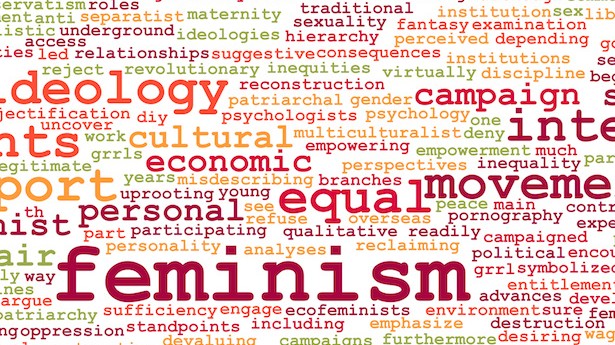You’ve probably seen the many dissertation posts I’ve made throughout the previous year. Sam calls them cheater posts, since I don’t write it specifically for NYMG (I say it’s half and half). But regardless, with the accomplishment of finishing, passing, and turning in the diss last week, it feels remiss to not post it here in its entirety. Usually when I write something I immediately hate it. I have a hard time going back and re-reading anything I’ve previously written. With the diss however, I’m pretty damn proud of it. It’s not perfect, and it’s not exactly what I thought it would be when I started, but you know, it’s not too bad. I’m going to link the file here and put the abstract in the post for y’all. I’ve also provided a chapter summary in case there is something specific you’re looking for. Perhaps someone will read it, perhaps someone will peruse it, perhaps someone will use it for figuring out how to format their own dissertation. At any rate, it’s here for folks to read if they desire.
Abstract:
This dissertation proposes “Procedural Ethics” as a methodology for studying video games, the video game industry, and other technology-producing fields. It utilizes principles of feminist research methodology, game studies, and professional and technical writing to provide a more ethical way to study games that focuses on material conditions and contexts from which games emerge. An in-depth analysis of company policies at five different video game companies is provided as an example of how a procedural ethics approach might look like.
Chapter 1:
This is the introduction. In it I cover the current landscape of gaming, utilizing a fabulous interview with game designer Sheri Graner Ray. I then move into STEM fields and representation, looking at the under representation in STEM fields versus specifically programming and finally into video games. I also discuss current ways of examining games, based primarily on “Procedural Rhetoric,” a term coined by Ian Bogost, which I spend much of the diss dismantling for being unethical. I then move into the “problem” of women in the video games industry, looking at everything from the economics of who is buying the games, to who is playing the games, to who is being called fat, ugly, and slutty for wanted to be a gamer (bet you can’t guess who). I then rip apart tired arguments claiming that 1) women aren’t in tech fields because they lack a natural capacity or 2) that they just don’t care about tech.
Chapter 2:
In Chapter Two, I discuss the literature relevant to my project. I start with a review of feminist research methodology. Feminist research methodology has shaped every part of this project. It taught me how to ask better questions and how to look at phenomena more totally than any other methodology I have encountered. My project rests on the major principles of this methodology and thus readers may encounter what could be seen as inconsistencies. For example, feminist research methodology suggests that the research can never (and shouldn’t) be separate from the research. In addition, this research methodology supports researcher intervention. Whereas previous schools of thought insisted that the researcher must not taint the environment, feminist research methodologists believe that impacting the environment is unavoidable, and thus can be embraced (as ethically as possible). Tenets of feminist research methodology are discussed in detail in Chapter Two.
I end Chapter Two by discussing workplace studies, professional writing scholarship, and other foundations that I rely on throughout my project. This section pays particular attention to studies of supposed meritocratic workplaces. One theorist I focus on, Emilio Castilla, writes, “Although these policies [meritocratic ones) are often adopted in the hope of motivating employees and ensuring meritocracy, policies with limited transparency and accountability can actually increase ascriptive bias and reduce equity in the workplace” (1479). This notion undergirds much of my argument in chapter four where I analyze claims of meritocracy in company policies, paying particular attention to how claims of meritocracy are used to circumvent official policies on harassment and discrimination.
I also discuss studies done by Deloitte Women’s Initiative, The San Francisco Gender Equality Principles Initiative, Norfond, the Association for Women’s Rights in Development, World Alliance for Citizen Participation, the United Nations Fund for Women, and Women’s Learning Partnership, Gender at Work, the George Washington University. Each of these studies uses a primarily holistic approach to analyzing gender issues. From them, I am able to draw out methods I use in Chapter 4 to analyze video game company policies. These also play heavily into Chapter 3, where I lay out my theory of procedural ethics.
Chapter 3:
Chapter Three defines and exemplifies Procedural Ethics, the theory I am coining as a more ethical way to study video games (and other STEM disciplines in general). Procedural ethics draws heavily from the studies discussed above, on studies of ethics being done in the field of game studies, and also on feminist research methodology as defined by scholars like Pat Sullivan. As ethics is currently growing in popularity in game studies, and feminist research methodology offers one of the most sensible and comprehensive strategies available, a hybrid methodology based in both areas is both useful and timely.
Chapter 4:
In chapter 4 I conduct my data analysis. This chapter is influenced significantly by the work of Brenton Faber, who argues that stories are the key to creating long lasting change (or as he calls it, “true change”). Further, he finds that the stories he is after are told in the documents of the industries he encounters. In other words, documents tell stories, and stories shape how people act. To create lasting change in a company, you must look to the formal documents or (as he finds) the lack of documents. He writes, “Change is inherently a discursive project. This means that change is restricted by the structures of language and by the conventions of language use. Change will be a product of what can be legitimately said (or written) in a specific context at a specific moment in time” (25). This view of change is one that I adopt completely in my project. In order to create change in the video game industry and community to make it better, safer, and diverse, I believe we need to start discursively, by analyzing and then altering the documents of those creating the games: the video game companies.
Chapter 5:
It’s very conclusiony. I rely heavily on Autumn Stanley’s Mothers of Invention for this chapter, arguing that the foundation of game studies is inherently flawed, and it order to start repairing it, we need to redefine what counts as a game, and what counts as technology as a whole. Enjoy!





2 thoughts on “Cheater Post: The FINAL Diss”
Can you just upload the whole thing? You KNOW you want to! LOL
Aww, crap. You did upload the entire thing. I missed the link.